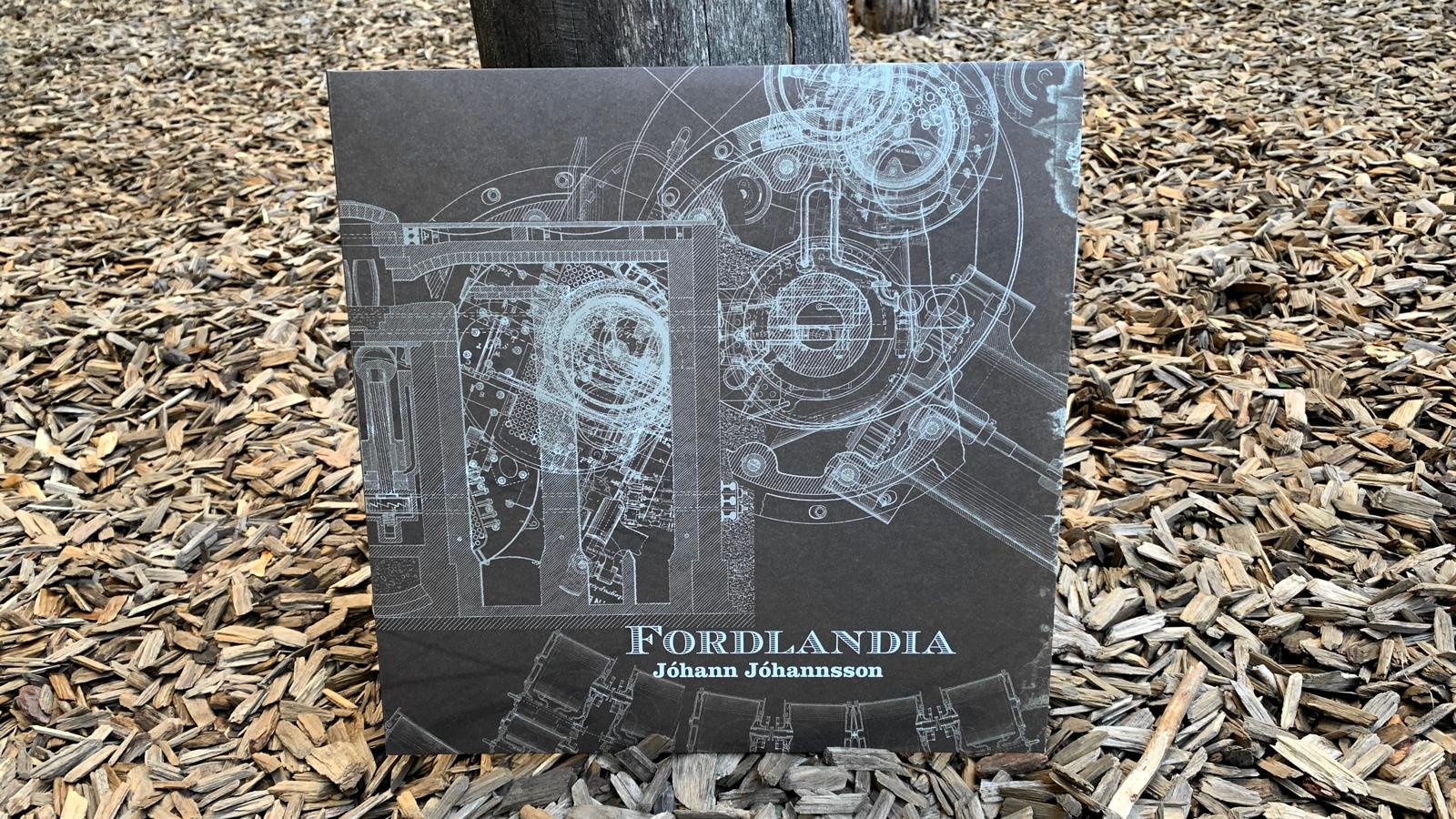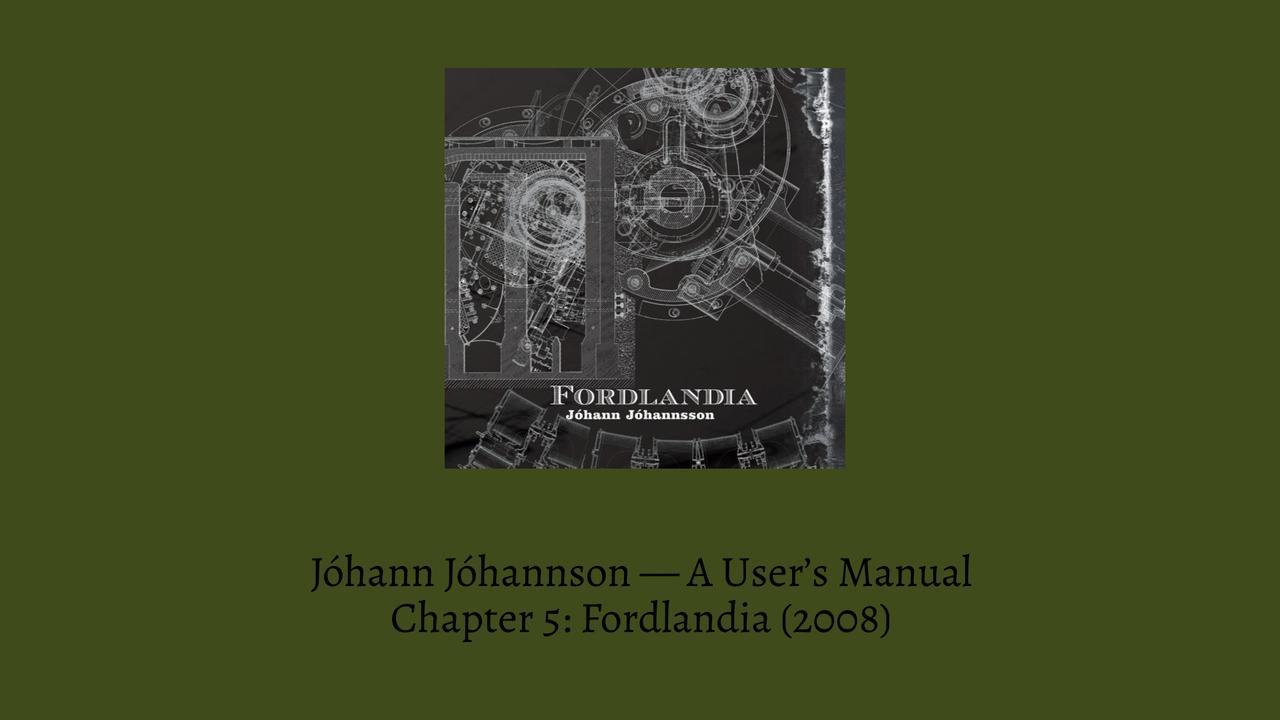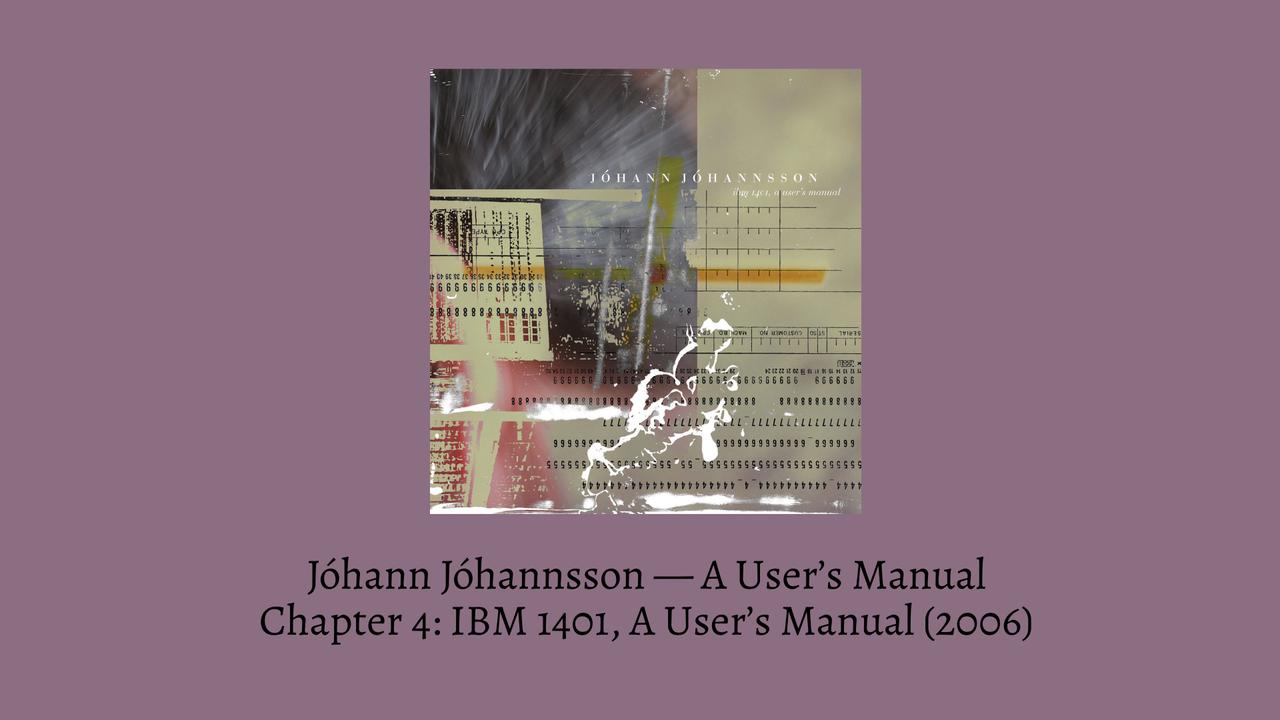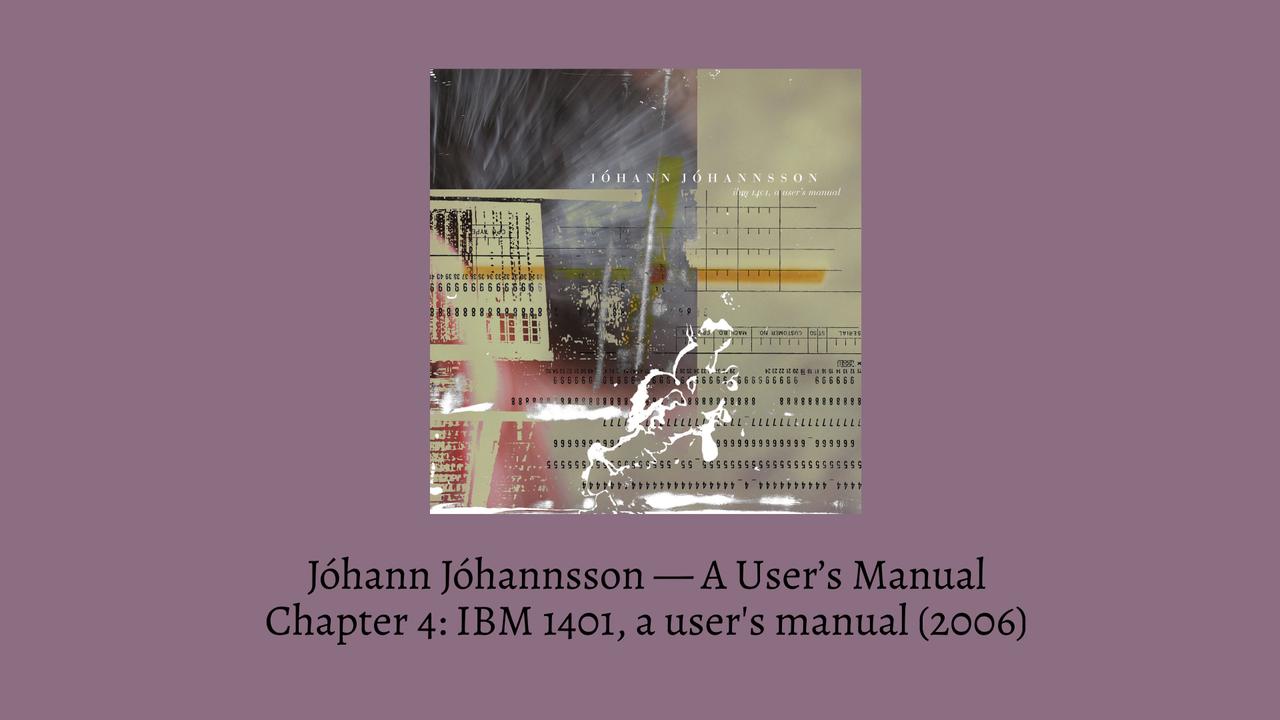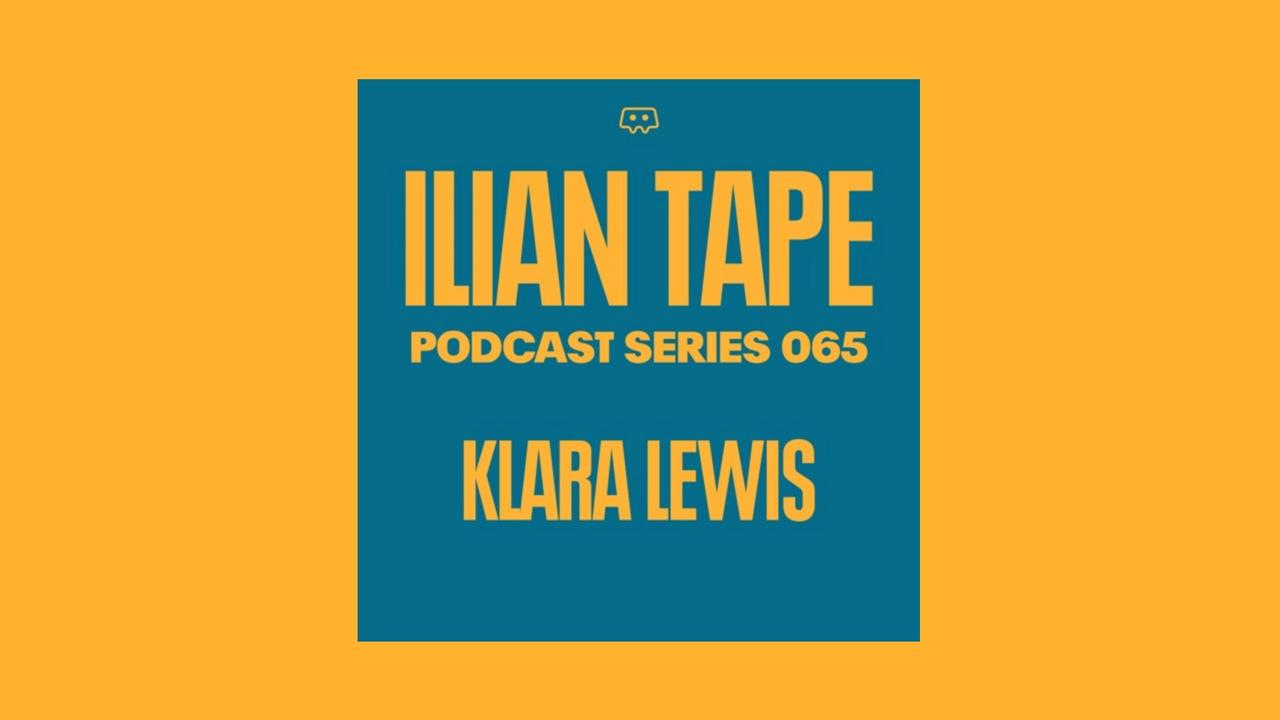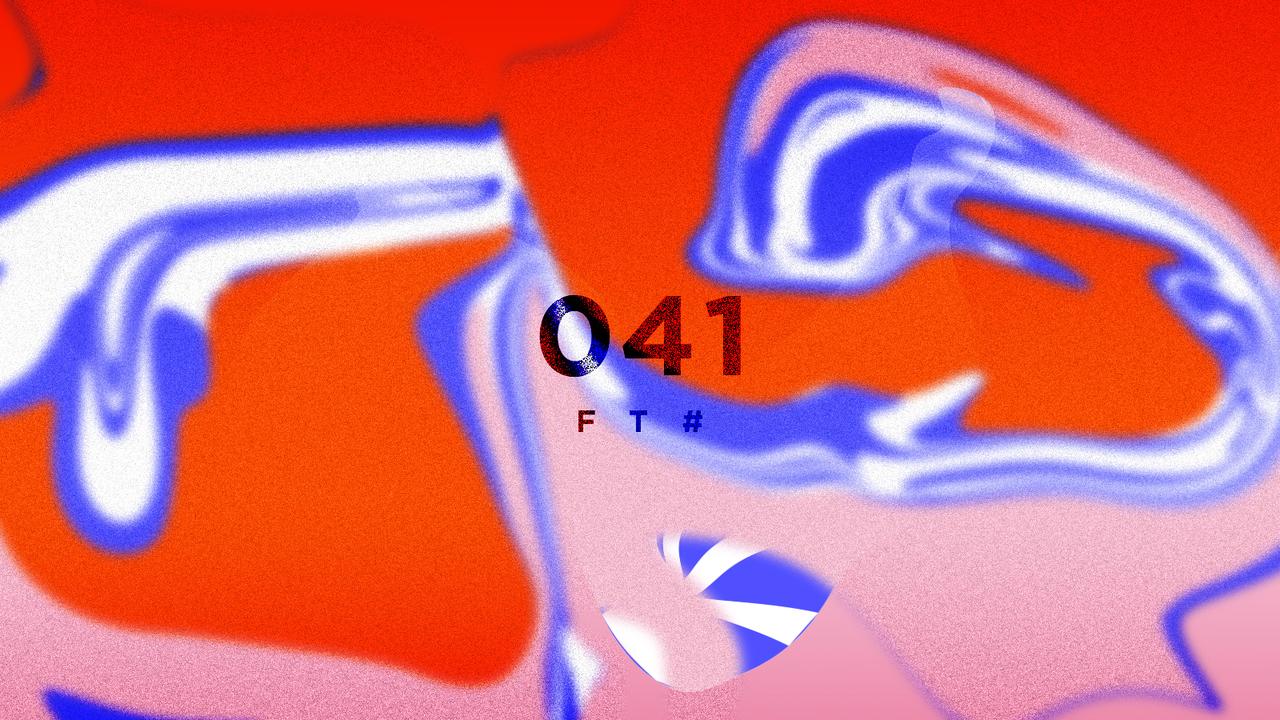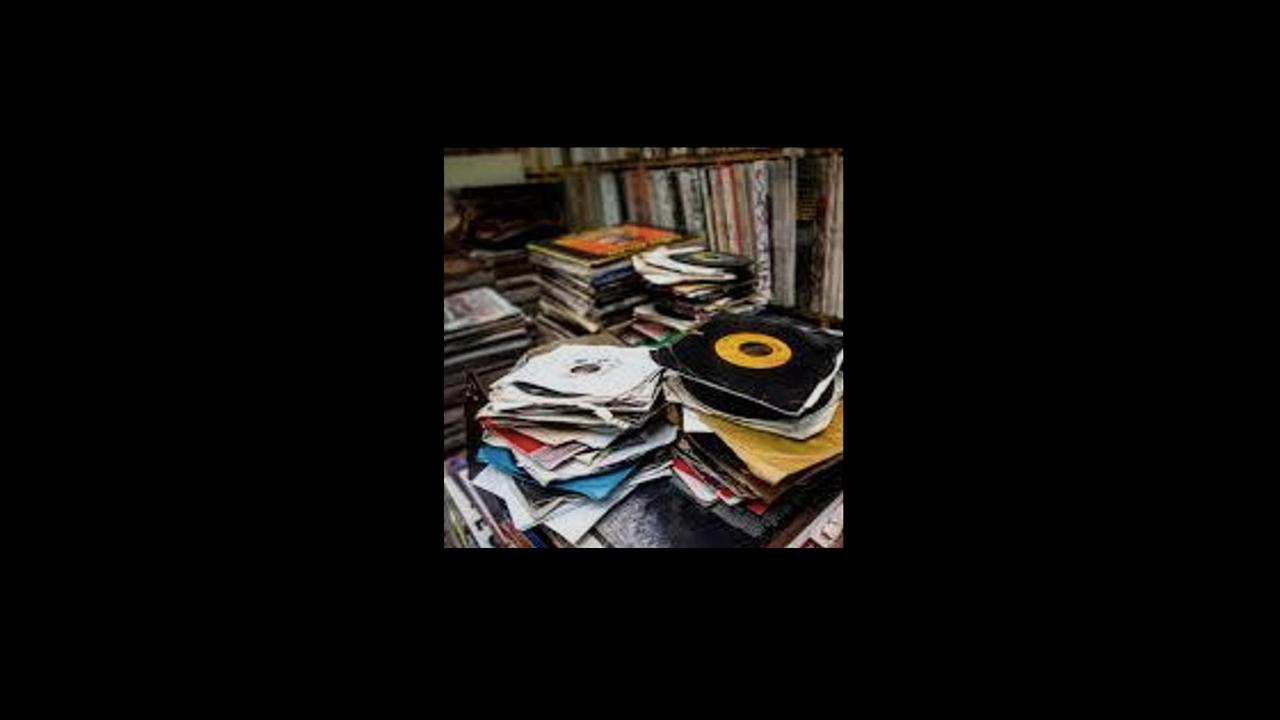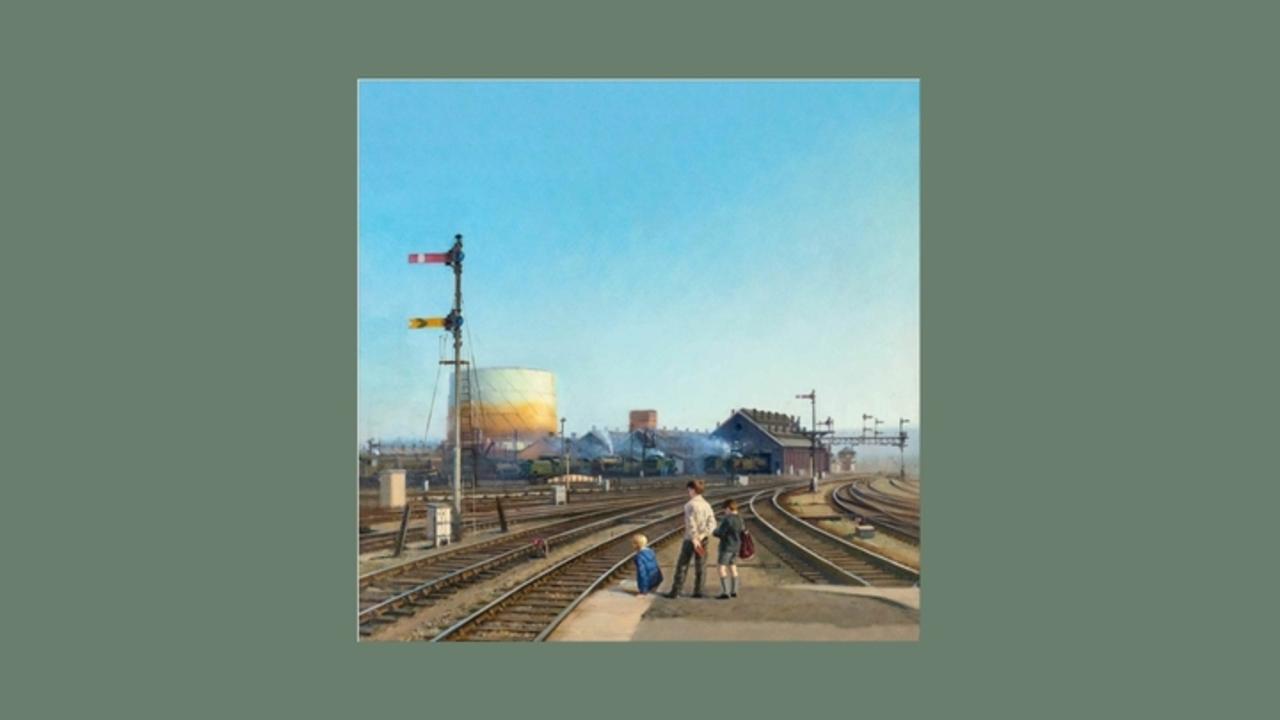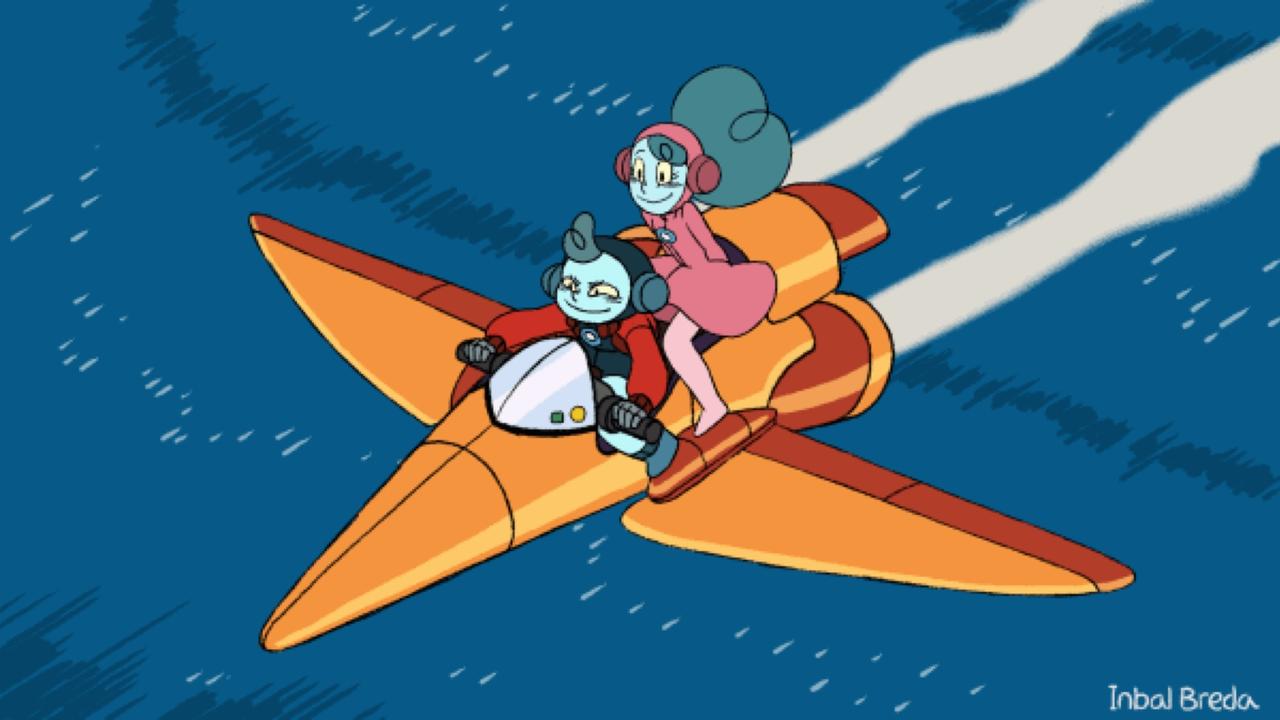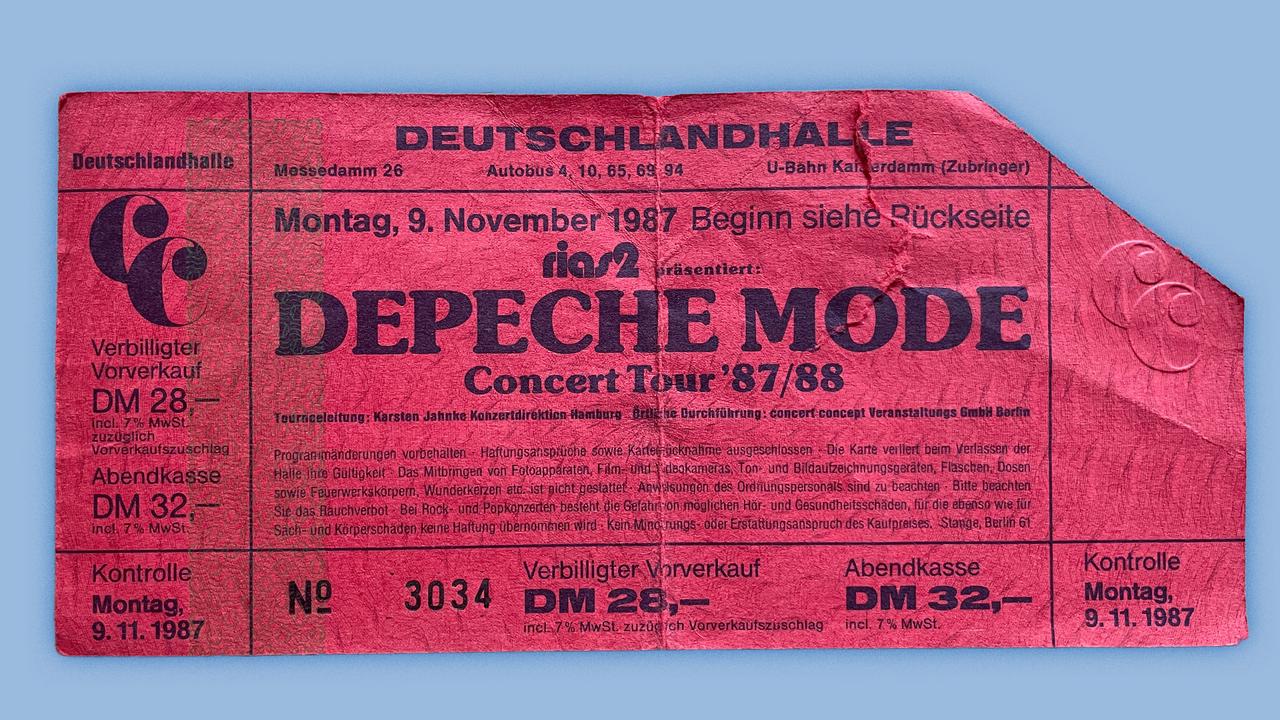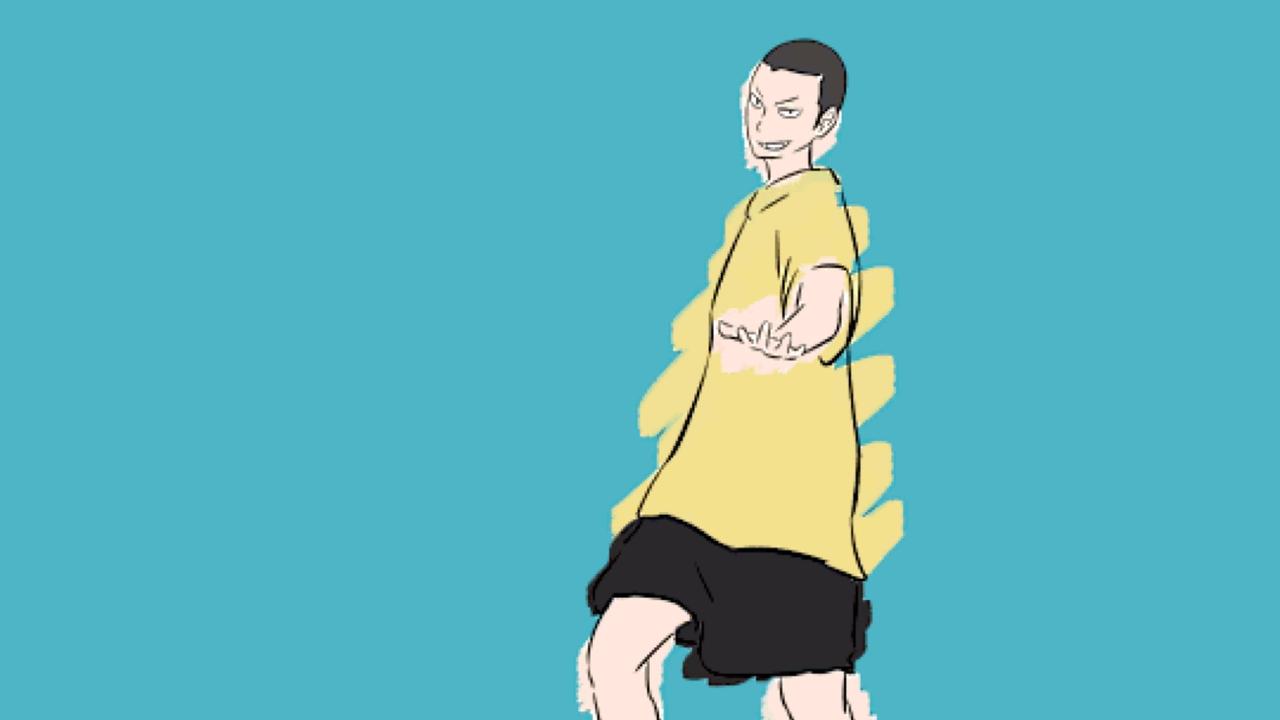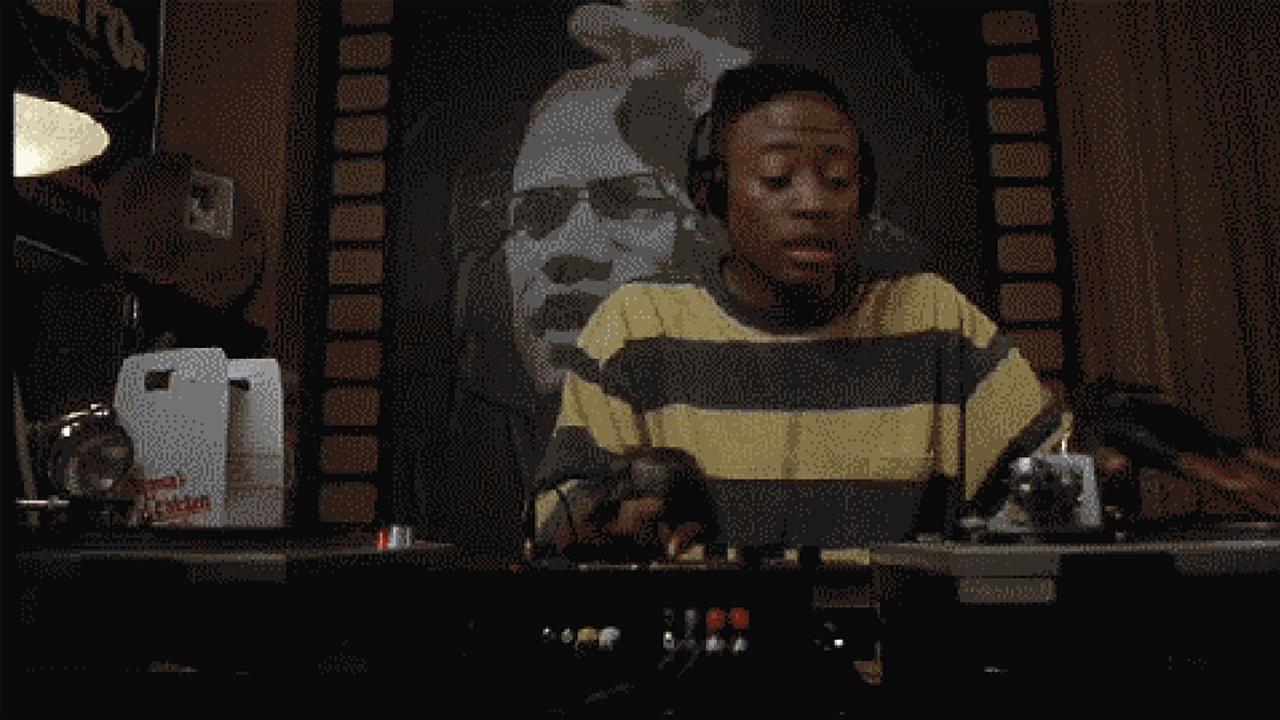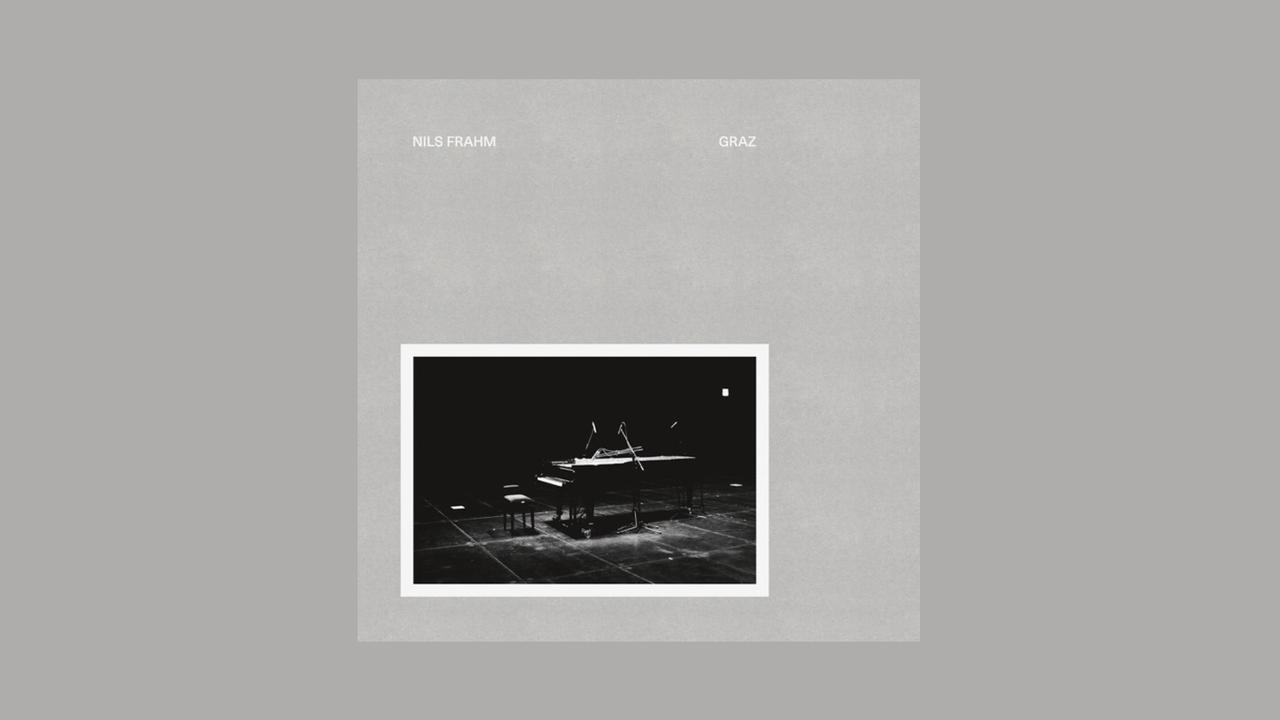Jóhann Jóhannsson – A User’s ManualChapter 5: Fordlandia (2008) – English
9.6.2021 • Sounds – Conversation: Kristoffer Cornils, Thaddeus Herrmann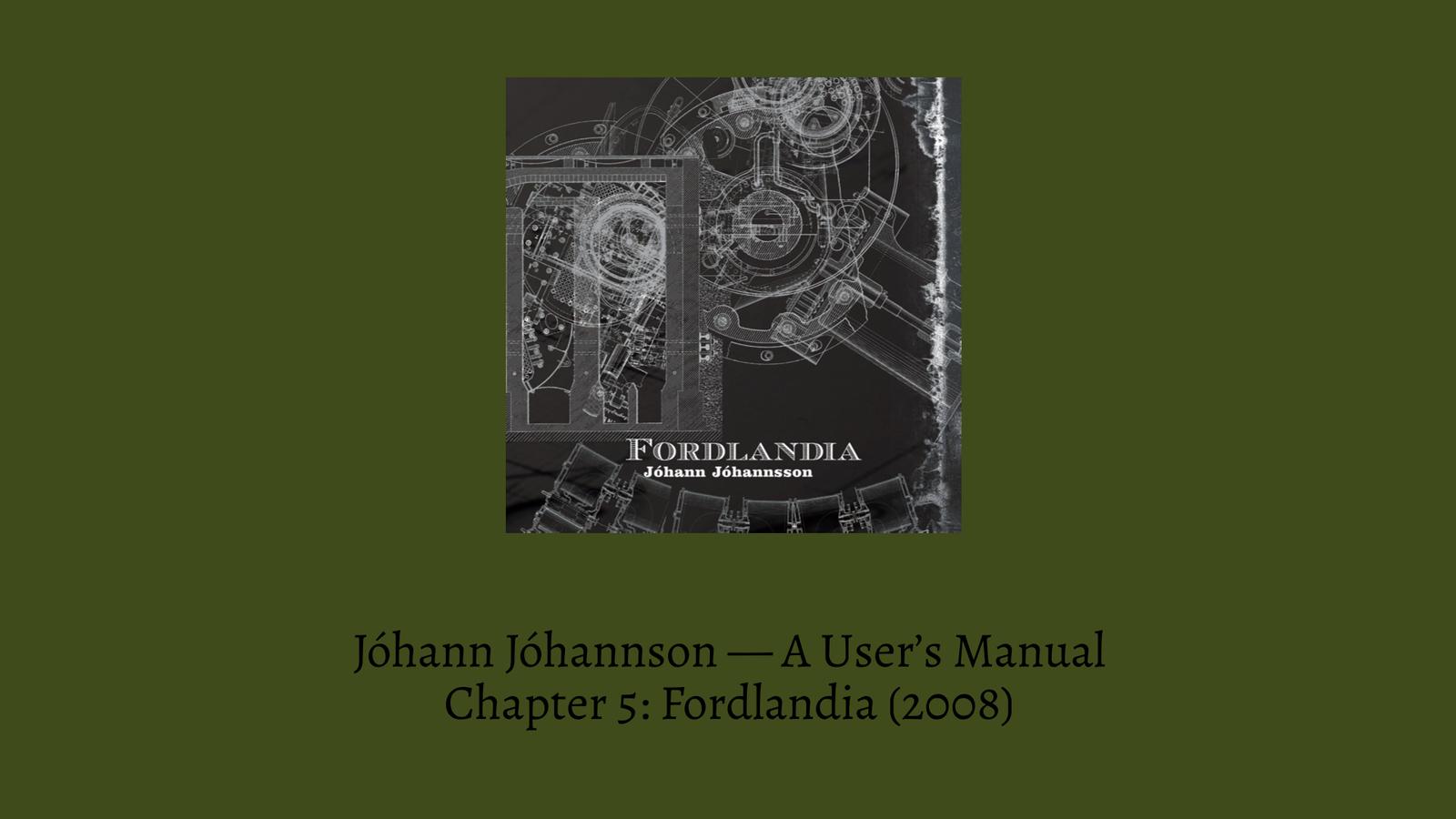
Jóhann Jóhannsson has released well over 20 albums in his career. And who really knows how many sound documents still lie in the drawer that could see the light of day posthumously. Once a month, Kristoffer Cornils and Thaddeus Herrmann review the composer's work - chronologically, album by album. In June, they both tackle "Fordlandia," released in 2008.
Deutsche Version? Hier klicken.
In the 1920s, Henry Ford had an idea. He wanted to free himself and his company from the dependence on British-controlled rubber production and extract the raw material himself – in Brazil. He bought land from the government and developed an almost megalomaniac utopia: a city of his own, Fordlândia, for tens of thousands of workers who would live and toil in a replica of a US American small-town idyll. No surprise that this utopia turned into a dystopia pretty soon. The people were dissatisfied, the organisation was catastrophic. Nearly 90 years later, Jóhann Jóhannsson took this story as a starting point for his eponymous album.
Thaddi: I haven't bought any new clothes for 14 months. I also urgently need new glasses, because I perceive reality, well, quite "interestingly" through the ever faster disintegrating plastic lenses of my current ones, which is not very helpful. I feel pretty comfortable in the role of the disoriented history professor, with worn elbows and no real awareness of my appearance. And therefore, with "Fordlandia," let me provide an overview of the historical framework of the album. I ask myself: How can a composer, whom I do not accuse of any, absolutely no racist tendencies, work on a failed utopia of a confirmed anti-Semite like Henry Ford? We'll get to the music in a minute, of course. I just can't get it together in my head. The concept, yeah, sure, it's cool. But from my "academic" point of view I think: come on, Jóhann, leave it. Don't make the Laibach mistake. I'm more than happy to forget this aspect – or approach it from a more abstract angle. Because the music is just wonderful. How do you feel about all that?
Kristoffer: First of all, I find it interesting that you open our conversation like this, after we had clashed in the last issue of this series. It showed our different approaches. You tend to approach the themes through the music and I sometimes approach Jóhannsson's music in the opposite way. And now this question.
Thaddi: Professors are unpredictable because they are so scatterbrained!
Kristoffer: Don't worry, I'm being stubborn again: I wouldn't start that debate in the first place, because the person Henry Ford plays a subordinate role for this album and our involvement with it – at least the private citizen. Above all it is a moral question and I think that morality will play a big role in the further course of the conversation, but we should first talk about other things. Technology, above all. There is little to be said against it at the moment: we are sitting in the same room together for the first time in 18 months, and this has been made possible by an incredible scientific effort whose success we owe solely to technological progress. We are inoculated and tested, we feel safe. There is an emancipatory potential in that. And something similar could be said about the cars Henry Ford produced back then. They promised an affordable freedom of movement. Then as now, however, it is worth looking at Brazil: just as Fordlândia ended in an ecological and social catastrophe, the people there are just as unlikely to enjoy the technologically supported promises of freedom today. Half a million people have died directly from COVID-19; just one friend alone from Brasilia told me of a few indirect victims who could no longer withstand the despair brought on by a double crisis. Could this be remedied? Maybe. At least it would be possible to alleviate the effects. But the priority of the European Union and other power conglomerates is to ensure that the people can once again spend their savings in the shopping malls of their countries and that huge pharmaceutical companies emerge from the affair with a fat bank account. Technology can never be thought of without economics, in a purely economic sense as well as in a (power) political sense: cui bono? This, however, brings me back to your question, which seemed to lead away from this album: Do you think that Jóhannsson's musical engagement with the Fordlândia project and thus also with the person who conceived it is an affirmative one? Because I find that more exciting than the discussion about the music itself, since we are probably pretty much in agreement on that.
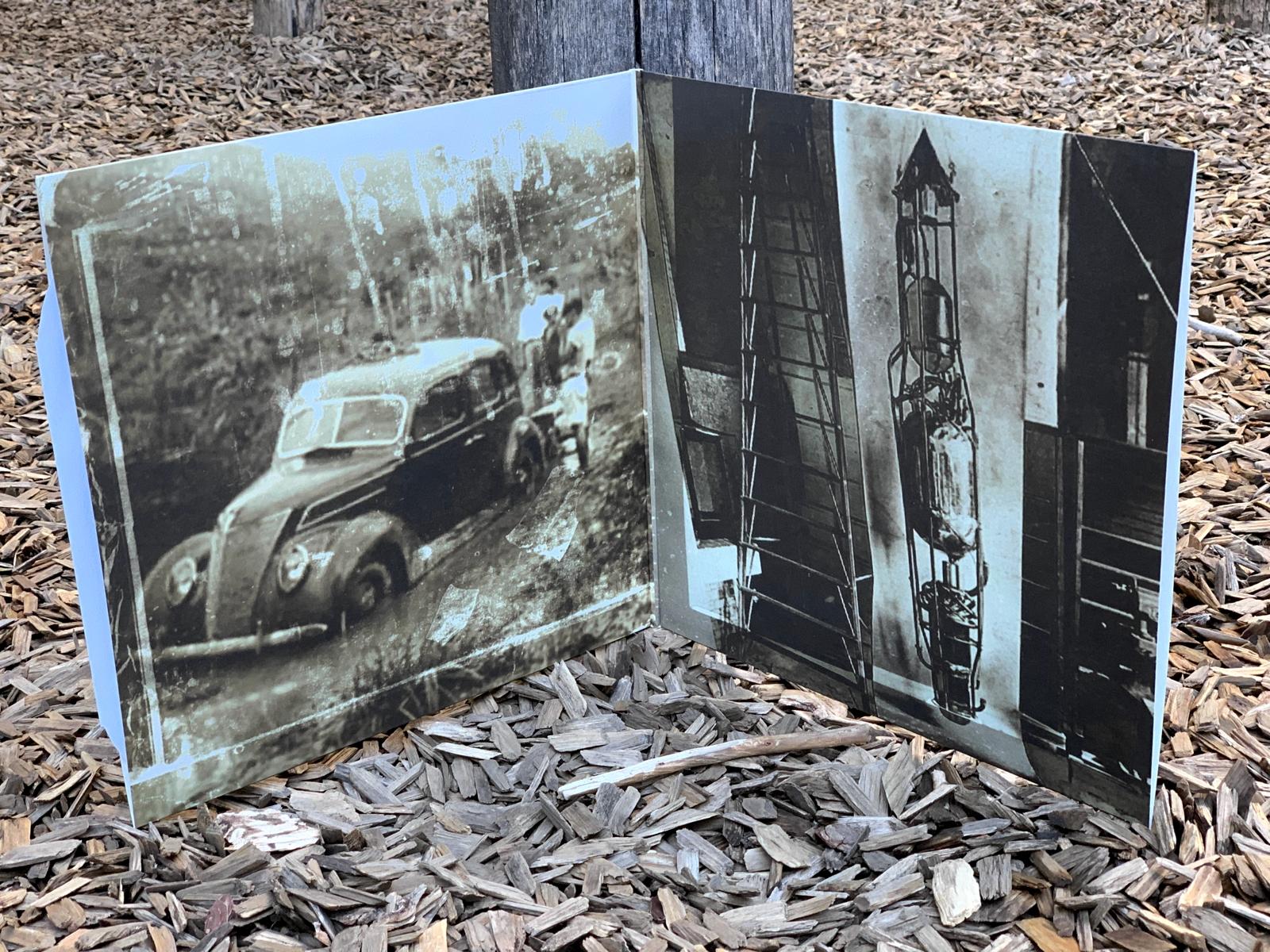
Thaddi: I can't assess that. My knowledge comes from the usual sources – and I'll accept them for now. I already mentioned my ideological concerns a few years ago in a piece with our colleague Raabenstein – but they don't diminish or influence the power of this album. That probably wouldn't be fair either. After all, we don't know (or do we?) how Jóhann related to this social-capitalist construct with its almost colonialist component, if at all. I therefore assume that he looked at the idea itself and was inspired by it. And that's how one of his best albums came about, right? One that was made with the same personnel as "IBM 1401 - A User's Manual," a record which you said showed an immature relationship between composer and orchestra. Now we are listening to the successor. And sit on the rubber plantation. Thoughts?
Perhaps the question of ideology doesn't arise at all, because the leitmotif is a different one: delusions of grandeur, hence the references to "Fitzcarraldo," or at least apodictic belief in progress, and the efforts that inevitably go hand in hand with it.
Kristoffer: Quite a few! Because you've raised a lot of topics and questions. Let's start with the one about sources. I don't know about you, but I have two copies of Fordlandia on my shelf. The first vinyl pressing from 2013 and the one from 2019. The latter comes with liner notes in which Jóhannsson writes something about each track, thus elaborating a bit more on his notes for the first vinyl release. Back then, he mostly wrote about Ford's project, but at the same time he made it clear that the idea of "failed utopias" was only one of the two red threads. Which one was the second can only be read in these new liner notes and is also expressed in a track title: "The Rocket Builder (Lo Pan!)." He was equally inspired by John Whiteside Parsons, an Aleister Crowley devotee (!) who taught himself (!!) to invent the world's first rocket fuel (!!!). That is to say, although the central theme of this album is this strange and absolutely colonial gated community in the Amazon region, it is not the only one. Rather, we're dealing with something similar to "Virðulegu Forsetar": a few more or less loosely related themes are combined relatively wildly. Accordingly, the question of ideology perhaps doesn't arise at all, because the leitmotif is a different one: delusions of grandeur, hence the references to "Fitzcarraldo," or at least apodictic belief in progress, and the efforts that inevitably go hand in hand with it. Which brings us back to the album. Musically it combines everything, and I mean everything, that we heard on Jóhannsson's first four releases - including the guitars, which were terribly annoying on "Dís" and are wonderfully integrated into an orchestral setting here. There is the play with chamber music conventions and leitmotifs that we heard on "Englabörn," the gravitas of "Virðulegu Forsetar" and of course this mix of electronic elements and orchestral arrangements that had not yet fully convinced me on "IBM 1401 - A User's Manual." Postmodernism has never been more concise. For the bringing together of very many different disparate themes with the central idea of utopia is thus given an aesthetic expression.
Now, however, I asked quite judgmentally: do we find this affirmative? And that is a question I find difficult to answer myself. Because of course a lot of euphoria resonates through the orchestra pit. But at the same time, sadness is also audible. An emotional tipping game, like the one that characterised "IBM 1401 - A User‘s Manual," where the tenderness with which Jóhannsson confronted obsolete technology was at the same time an expression of great melancholy. And I feel similarly about "Fordlandia." I find it difficult to grasp the emotional thrust: what am I supposed to feel, precisely? I only know that it's a lot. And that I think it's one of his best albums ever, sure thing.
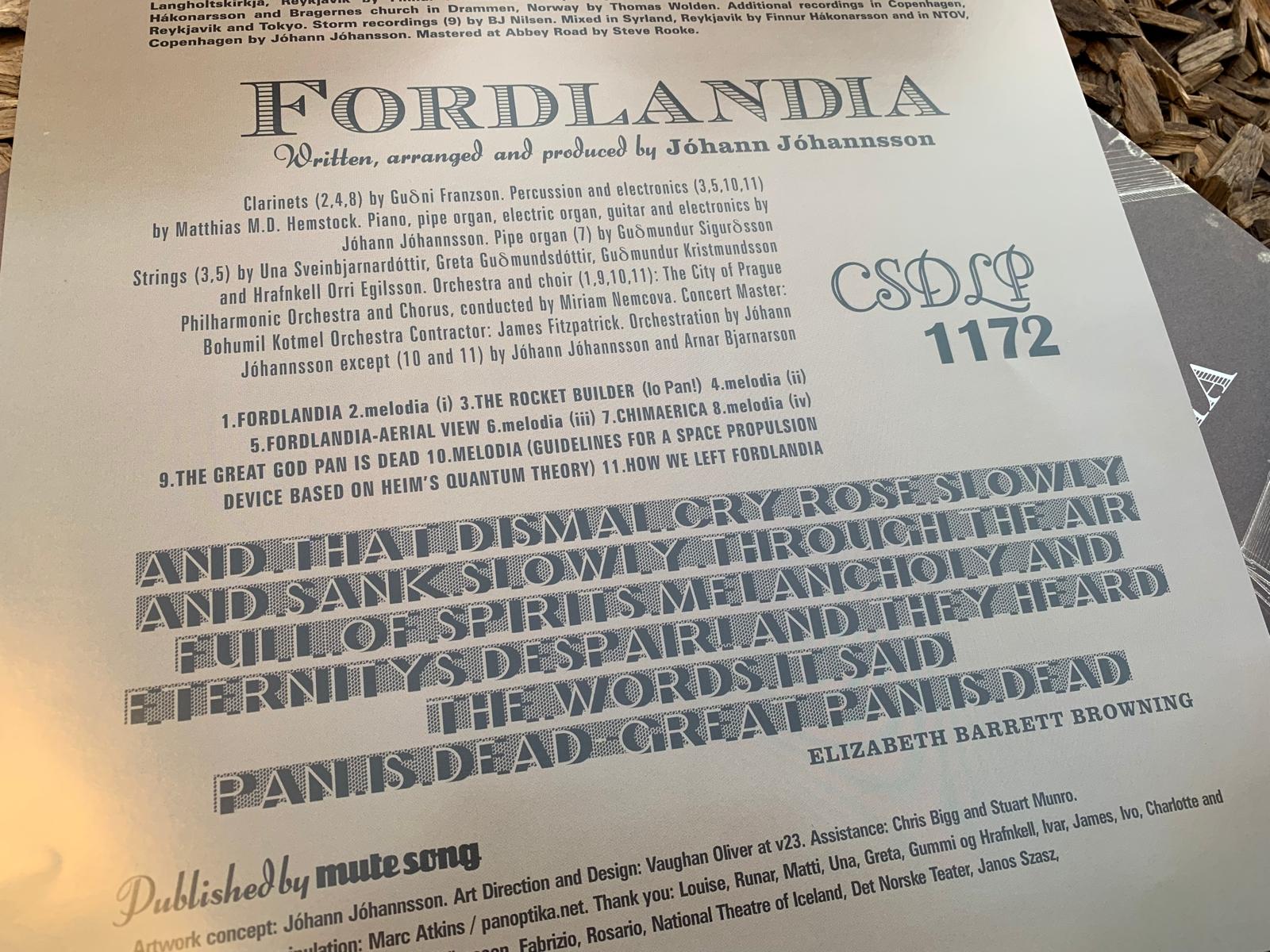
Thaddi: I recently gave the album to my father for his birthday. Out of a classic missionary attitude, sure, but also in the hope that the music would catch on with him in some way. It did. He likes the work and understands the musical dimension. That is one level. The purely musical side of it. I don't think you can fault that one. It's a wonderful work, with all the ingredients we are used to and – you name it – have come to know and expect. I don't know for the life of me whether it's purposeful to open up the big picture – the context, the inspiration, the starting point for this album. Maybe these are two different conversations, or maybe they belong together quite closely and compellingly. I'm undecided on that. When I first heard the album, I didn't read liner notes or anything. I just listened to the music and classified it. Only later did I understand the story behind it. Of course, I had questions. The question of affirmation: I don't know exactly if that's fair – or can extend to music and context at the same time.
Kristoffer: It might not be fair, indeed. But unavoidable, because there is no positioning in political or social terms. That pisses me off a bit because I entered Jóhannsson's work with "The Miners' Hymns," an album that seems to position itself very decidedly on a political and social level. Here, however, this dimension is completely missing. Instead Jóhannsson devotes himself – at least I think so – to a more humanistic reading of the Fordlândia project and similar efforts. Basically, I think he interprets both the settlement and the concept, as well as the preoccupation with rockets, as a kind of re-enactment of the Icarus myth: fly high, fall low. Any utopia is always deeply ambivalent and I think that was his main interest – so he was less, let's say, materialistic and concretely political about the themes he was working through. If that's frustrating for me, though, it says more about me as a listener and political person than it does about him as a composer, I have to admit. I am, of course, looking back on this album now and here at your kitchen table. I can't remember my first listening experience. But I also know how I put the record on for the first time after I bought it – I don't know where, I don't know when. I did something I usually don't do at all: I lay down on to the bed and just listened. Intensively and without doing anything else. Getting up in between, turning the record over, pulling the next one out of the sleeve – those were my only occupations for a good 70 minutes. That happens extremely rarely for me. But "Fordlandia" makes it possible to immerse yourself in it. And it's probably not just me. Isn't this the album that Nils Frahm Biedermeier freaks, post-rock fans and Arvo Pärt ultras can join hands with? In the context of the neo-classical hype that was emerging at the time, isn't this pretty much the crossover work? The album that everyone can really agree on? At least it seems that way to me.
"Fordlandia" is an album that stands on its own. I know, a commonplace of review-writing people, but I still find the elaboration of the various themes impressive.
Thaddi: I wonder if this record is the common-sense of your aforementioned target audience. I. Do. Not. Know. I would certainly hope so. Because I think it's perfectly legitimate to let the music work itself out first and only then let the context – the supposed context – slowly seep in. "Fordlandia" is an album that stands on its own. I know, a commonplace of review-writing people, but I still find the elaboration of the various themes impressive. With this, Jóhannsson puts a work unlike any other in his portfolio. After all, it's all about the details – from a musical point of view. In the extended version of the title track, at the end of the album, he turns the entire storytelling of the main theme around, and within a few seconds creates one of my – still – deepest experiences with music ever. That alone is worth its weight in gold. And then the story – the other storytelling – comes into it. That's almost secondary for me, because - a) of course I want to know everything about it, but on the other hand - b) I don't want to get stuck on it either, or necessarily bring these things together.
Kristoffer: It's his dramaturgical masterpiece for sure, no other of his albums or even his soundtrack work comes close to it in terms of storytelling, as you call it. It is a truly through-composed work, although its creation – according to the liner notes - was extremely disparate. And that also sheds all the light more on all the little details, as you quite rightly say. Every single note, every leitmotif taken up again and again unfolds all the more effectively because it functions as part of a whole that stands monumentally on its own. Which brings us to the difference between his film and theatre work on the one hand and his album work on the other: here, a story is told that exists purely by itself. Which makes "Fordlandia" his best album-album. No question about that. But I still have another question: does this record still grab you like it did five or ten years ago? Maybe I'm speaking very much from the moment and my current state of mind, but: not me. I love the album, no doubt about that. But I don't see myself spending another whole evening in bed with it.
Thaddi: As a matter of fact, yes. It still grabs me – mainly because of the long variation of the title theme. No matter where I am, how I feel: this piece still pulls me into a state of the most insane and deepest admiration. It's very little tricks that I jump at. And then I want to embrace the composer again and again. In a way, this record represents me. No matter what the story around it, which is of course extremely important, provides me with additional fodder.
Kristoffer: Yes. And it also stands for itself, in a very perfectionist way: "Fordlandia", that's Jóhannsson in pure form. It's just that perfectionism which quickly bores me, because I prefer to pay attention to the tensions between a wish and its fulfillment – which, after all, is the central theme of this LP. But musically, it simply says it all. And the rest, well, the audience can read it and draw their own conclusions. There's nothing wrong with that and it's even extremely modest, which is something thoroughly positive in my book. But it also leads to the fact that I have become a little alienated from "Fordlandia" over time. Because this album seems all too familiar to me.
